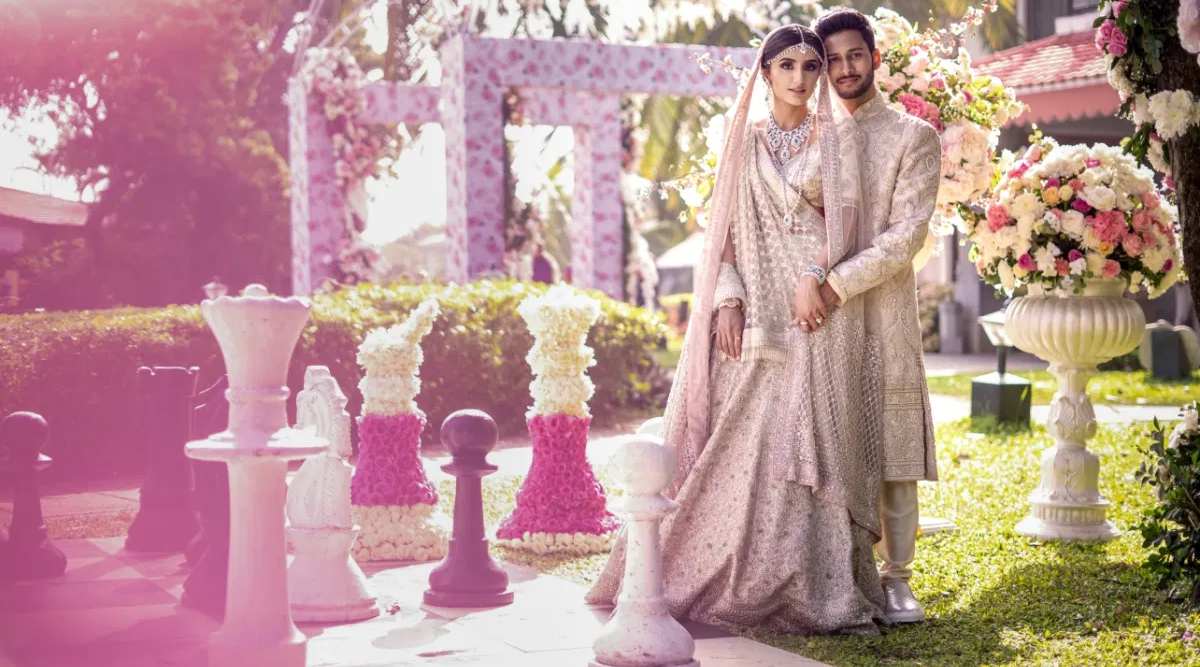
In Priyanka Chopra Jonas’ memoir Unfinished, the actor halts at several instances to try and explain habits, terms and instances peculiar to India. At one point, mentioning her stay in the States with her maasi, she writes, “In India, taking care of one another’s children as if they are our own is just part of who we are. It’s seen as a duty and a responsibility, not an imposition.” This approach of excess explication bordering on reduction keeps repeating till it reveals itself: her story is for all but meant for a global mainstream audience.
This consciousness regulates the narrative diet resulting in a painfully simplistic memoir of an extraordinary life, an easy primer of the myth-making of Priyanka Chopra. Reading it I kept thinking back to the distinct genre Netflix has created and furthered with admirable consistency: documentary-cum-reality shows. Much like the memoir, these shows have an all-Indian cast and obliterate complexities of a country or individuals to fit into an existing mould. The latest addition to Netflix’s roster is The Big Day.
In the last year alone, the streaming giant — accessible across 190 countries — made space for the regressive Indian Matchmaking and unsatisfactory Fabulous Lives of Bollywood Wives. Both shows, apart from sharing their sheer optimism about India’s GDP, are linked by treating the country and its people devoid of nuances and contradictions. And while the cachet in Fabulous Lives… nullifies this criticism to an extent, the very lack of it in Indian Matchmaking reduces it to a fallacious attempt. Every beat of this is repeated in The Big Day where the homegrown concept of arranged marriage takes the shape of the big fat Indian wedding.
Much like its predecessor, The Big Day is pegged as depicting a practice, the prospect of which in a country like India by definition is diverse, disagreeable, affecting, objectionable and odious. In the show (produced by Condé Nast India) preparations of an impending wedding is documented by following engaged couples days before the ‘big day’. Spread across three episodes — believed to be the first batch of the franchise — it features six weddings bookended by opulence and blinding myopia. These are elaborate events consisting of cameos from Bollywood choreographers and actors, and providing skewed, limited portraits of Indian weddings without any mention or discussion of the primary adversaries: caste and class.
But that is not to say they hold back on tokenism. For instance there is an interfaith wedding in the third episode (Gayatri Singh, daughter of journalist Seema Mustafa with Poker commentator Aditya Wadhwani), but the fact that this disparity is — and can be — evened out by financial affinity is nowhere broached, save an ambiguous line: “She fits into our family”.
The central idea of The Big Day rests on the rise of modern Indian couples who do not hesitate in taking charge of their wedding. And in ample instances, the assorted Non-Resident Indians as well as those based out of the country seek to undo the overt patriarchal connotations in the wedding vows and rituals by doing things their own way. More than one couple does away with kanyadan, wanting to make their weddings personal and equal. But this is completely undone by the inclusion of wedding planners, and by extension, orchestrating and corporatising their marriage. The personal is professional. Similarly for all the talks and awareness about sustainability, the couples fly in their guests from different parts of the world.
But the show’s biggest disservice is the way it disparages women who choose to have things their own way, clubbing them in a separate episode and christening them as ‘Type A Bride’, as a slander. Their involvement is viewed as control, their opinion deemed as assertion. This inadvertently ends up illustrating the losing battle women are in by having to partake in an institution which, by design, is inconvenienced for them. The passage of time and privilege may have enabled them to cease being a mute spectator at their weddings, but it has also laid down lopsided participation as the only proof of presence. All brides in the show constantly juggle work with wedding preparations as the men — cushioned from undertaking any labour — sit on the sidelines.
One of the grooms states with abject callousness that he is a guest at his own wedding. “I have not contributed at all to the design and decor.” The only time this labour is not emphasised in is the same-sex wedding of two men (Tyrone Braganza and Daniel Bauer) which also strays from any conversation regarding their privilege benefitting such a ‘celebration’ in the country.
The Big Day then — much like Indian Matchmaking — uses India as a backdrop, pointing the camera at places they want to view and be viewed against. It feeds into stereotypes without caring enough to examine the discrepancies. And by doing so, upholds the idea of wedding being a great leveller, when in fact, it is a breeding site of prejudices.
For more lifestyle news, follow us: Twitter: lifestyle_ie | Facebook: IE Lifestyle | Instagram: ie_lifestyle
Article From & Read More ( The Big Day: Another vacuous Netflix attempt at Indian myth-making - The Indian Express )https://ift.tt/3kx37hF
Technology
Bagikan Berita Ini














0 Response to "The Big Day: Another vacuous Netflix attempt at Indian myth-making - The Indian Express"
Post a Comment